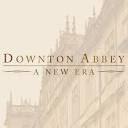The popularity of Downton Abbey has been phenomenal. The six-season series was the most viewed PBS drama ever. (Its highest number of viewers was a weekly average of 13.3 million viewers during season four.) Likewise, the movie sequel proved an unsurprising success at the box office, earning some $194 million. We will know soon enough whether this second movie will fare as well. Certainly this viewer has not yet tired of the aristocratic Crawleys and their extended household and social network, both upstairs and down. Regarding the epic's long-term future, Downton's creator Julian Fellowes recently said: "I'm not going to go on forever. So I think there would be a real difficulty getting Downton to go on forever. Whether it's come to an end or not, I couldn't tell you."
Fellowes' coyness aside, the series must come to an end, and this film is as good an ending as any. But enough about about!
Meanwhile, we have this second Downton movie, which features many of the classic cast - all the main ones, including once again Samantha Bond back as Lady Rosamund, but sadly without Lady Mary's second husband Henry Talbot (Matthew Goode).
It involves no unnecessary revelations ("spoilers") to say that, in the 1928 iteration of Downton Abbey, the unexpected excursion to France follows from the Dowager Countess' having inherited a villa in the south of France from the Marquis de Montmirail, with whom she had once been briefly involved in some fashion back in the 1860s. When asked why she didn't turn it down, she answers, “Do I look as if I’d turn down a villa in the south of France?” So off they go, Lord and Lady Grantham, their daughter Edith and her husband (Lord and Lady Hexham), and the supposedly retired (but back whenever there is a movie) butler, Carson. Also invited, for particularly relevant reasons, are son-in-law Tom Branson and his new wife, Lucy (a marriage already predictable froim the end of the previous movie). Obviously, one can never have too many weddings in a saga which is, after all, ultimately about family!
Meanwhile, as Lady Grantham says, "the modern world comes to Downton," as Lady Mary, responding to the ever increasing financial challenges of keeping the estate going in the 20th century (a perennial theme of the series), allows Downton to play host to the making of a movie. Reprising the wartime transformation of the house, this entails the disruption of ordinary routines and relationships by the intrusive presence of movie stars and film crew, including stars from a very different social class, highlighting as Downton does so well the complex dynamics of class in an inexorably changing Britain.
That's probably as much as I should reveal on the film's opening day - exceprt to say it is a beautiful film and not to be missed!


No comments:
Post a Comment